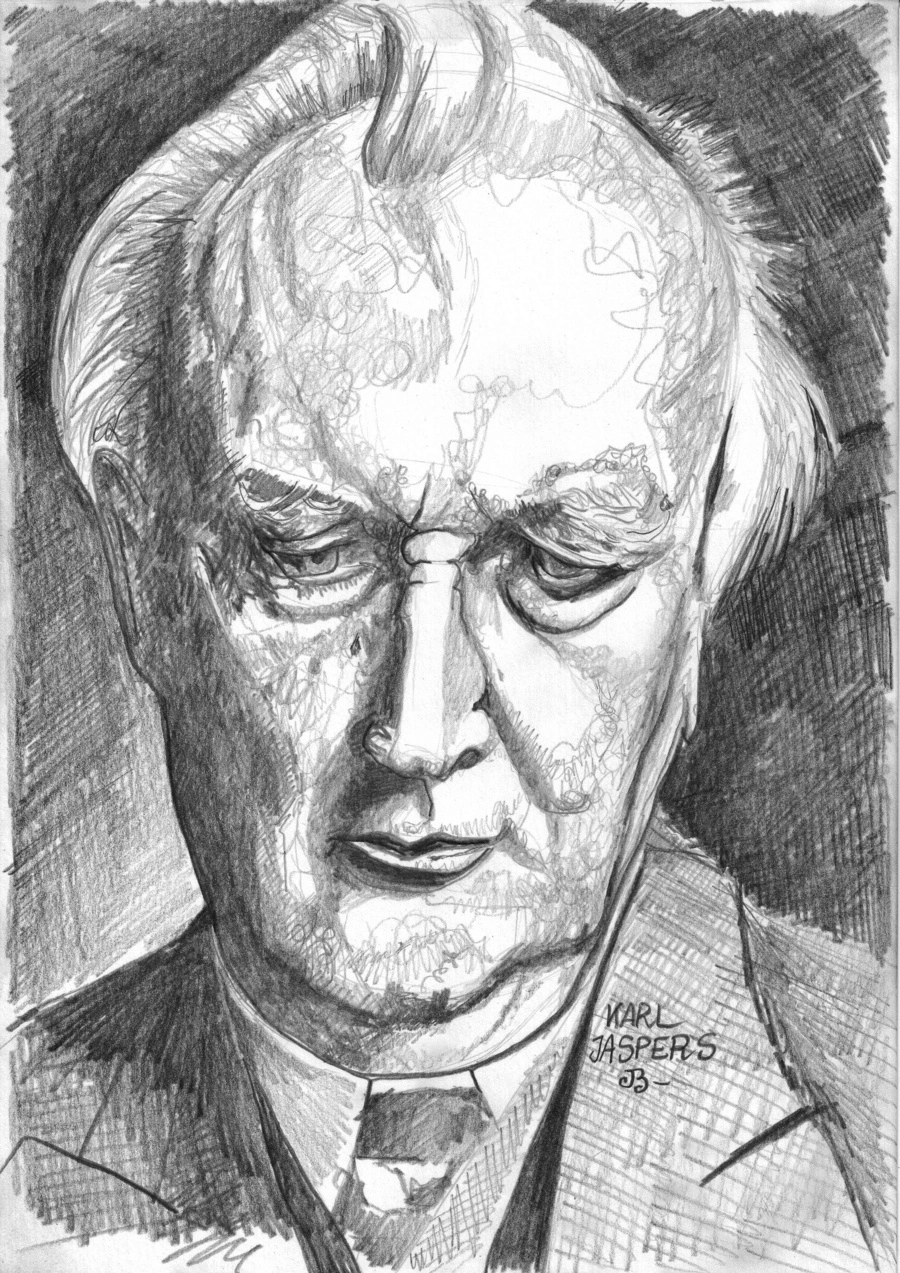JASPERS, KARL
Publié le 22/02/2012

Extrait du document

JASPERS, KARL (1883–1969), philosopher; among the founders of existentialism.
Born in Oldenburg in East Frisia, he studied law before taking a medical
doctorate in 1909 at Heidelberg; he then worked at Heidelberg's psychiatric
hospital as a research assistant. In 1913, after he published his masterful Allgemeine
Psychopathologie (General psychopathology), he was appointed ausserordentlicher
Professor of psychology at Heidelberg. Just after World War I
he wrote Psychologie der Weltanschauungen (Psychology of world views), a
work heavily influenced by Wilhelm Dilthey and marking Jaspers's transition
from medicine through psychiatry and psychology to philosophy. By proposing
that scientific philosophy was illogical since no philosophical position could ever
be universal, the book alienated Heidelberg's famous neo-Kantian, Heinrich
Rickert.*
Over Rickert's protests, Jaspers became full professor at Heidelberg in 1922.
Shunned by the so-called Rickertkreis (Rickert Circle), he found fulfillment by
polishing his ideas in lectures. After he attracted a wide student following, his
isolation ended in 1932 with publication of Philosophie, his magnum opus.
Consisting of three volumes, the work helped institute Existenzphilosophie (existentialism)
and established Jaspers as Heidelberg's premier logician. The
NSDAP soon barred him from administrative appointment, proscribed his teaching
in 1937, and then prohibited him from publishing in 1938. Ignoring conditions
that others found intolerable, he used his isolation to prepare the first
one-thousand-page volume of a projected three-volume exploration entitled
Logik.
Jaspers was prolific, if often unclear and repetitious. His ideas focused largely
on individual reasoning and action, appealing to human endeavors reflective of
an authentic self-identity. He believed that philosophy, rather than exalting an
idealistic absolute, should support the individual in a unique and often-enigmatic
quest. Like Kierkegaard, he distrusted the conformism associated with church
and state, while, like Nietzsche, he defied those philosophers who served only
as apologists for the status quo. Suspicious of society's overconfidence in science,
he stressed man's irrationality as an antidote to too much positivism. Glorifying
neither professionalism nor the latest fad, Jaspers extolled that which
was great. ‘‘A single page from Plato or any great philosopher,'' he once argued
in a lecture, ‘‘is worth more than all the writings of Kuno Fischer''—Fischer
being one of the great historians of philosophy in the nineteenth century.
Liens utiles
- Explication de texte de Karl Jaspers: introduction à la philosophie(14/20)
- BOMBE ATOMIQUE ET L’AVENIR DE L’HOMME (LA), Karl Jaspers (résumé)
- ORIGINE ET SENS DE L’HISTOIRE [Ursprung und Sinn der Geschichte] de Karl Jaspers (Résumé et analyse)
- BOMBE ATOMIQUE ET L’AVENIR DE L’HOMME (La) Karl Jaspers (résumé)
- INTRODUCTION À LA PHILOSOPHIE, Karl Jaspers
